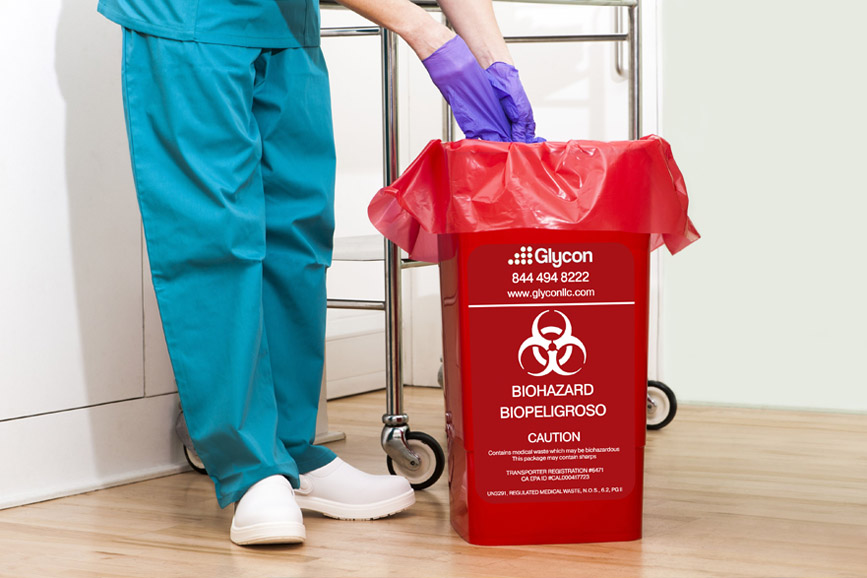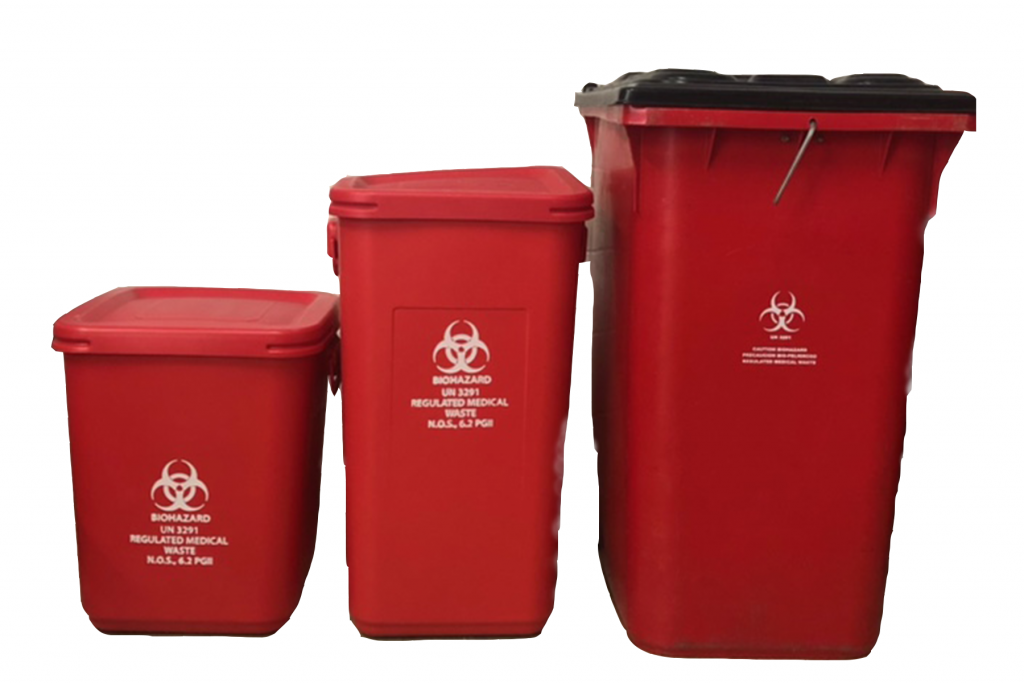Medical Waste Removal Quality: Elevating Safety And Security Requirements in Your Center
Medical Waste Removal Quality: Elevating Safety And Security Requirements in Your Center
Blog Article
The Value of Appropriate Medical Waste Disposal: A Guide for Health Care Facilities
Proper medical waste disposal is a critical element of medical care center monitoring, guaranteeing the security and wellness of individuals, personnel, and the atmosphere. From comprehending the various classifications of medical waste to complying with regulative demands, health care centers have to take on reliable waste partition practices and choose appropriate disposal techniques.
Comprehending Medical Waste Categories
Understanding medical waste categories is vital for appropriate disposal in healthcare centers. Medical waste is a broad term that encompasses different kinds of waste generated in healthcare setups, such as hospitals, clinics, and laboratories. Classifying clinical waste helps ensure that it is handled, saved, and disposed of safely and according to applicable laws.
There are a number of categories of medical waste that healthcare facilities require to be knowledgeable about. These classifications include contagious waste, sharps waste, pharmaceutical waste, chemical waste, and contaminated waste (medical waste disposal services with WasteX). Each category has details attributes and needs different disposal methods to decrease the risk of injury to medical care workers, individuals, and the atmosphere
Infectious waste, for example, refers to throw away infected with potentially infectious products, such as blood, body liquids, and cells. Drug waste consists of run out or extra medicines, while chemical waste consists of dangerous chemicals utilized in clinical procedures.
Compliance With Regulatory Demands
Healthcare centers need to guarantee conformity with regulatory needs for correct clinical garbage disposal. Regulatory bodies, such as the Environmental Protection Agency (EPA) and the Occupational Safety and Wellness Administration (OSHA), have developed standards and policies to protect public health and the atmosphere. These guidelines lay out the proper handling, storage, transport, and disposal of medical waste.
Conformity with governing demands is important for medical care facilities to avoid lawful charges, reputational damage, and potential injury to human health and the setting. Failure to abide by these guidelines can result in penalties, suits, and also the suspension or abrogation of running licenses.
To guarantee conformity, healthcare facilities must develop detailed waste monitoring programs that include personnel training, proper waste partition, and making use of suitable containers and labels. Regular audits and assessments should also be performed to identify any type of non-compliance issues and resolve them quickly.
It is crucial for healthcare facilities to keep up to date with modifications in regulations and upgrade their waste monitoring practices accordingly. This can be attained by proactively keeping an eye on updates from governing bodies and getting involved in training programs and workshops.
Executing Effective Waste Partition Practices
To make sure correct medical garbage disposal, healthcare facilities should carry out efficient waste partition techniques. Waste partition is an important step in the total waste management process, as it aids decrease the threat of infection, prevents cross-contamination, and makes sure the secure disposal of various kinds of waste. Reliable waste segregation practices involve dividing clinical waste right into various groups based upon its characteristics and potential hazards.
One usual technique is the segregation of sharps waste, such as scalpels and needles, from other kinds of medical waste. Sharps waste should be positioned in puncture-resistant containers to avoid injuries and potential infections. Additionally, hazardous waste, such as chemicals and pharmaceuticals, ought to be separated from general clinical waste to avoid ecological contamination.
Correct labeling and color-coding of waste containers are crucial for reliable waste partition. Clear and visible labels ought to be placed on each container to show the kind of waste it contains and any kind of unique handling requirements - medical waste disposal services with WasteX. Furthermore, color-coding can be used to separate in between different waste classifications, making it less complicated for healthcare personnel to recognize and dispose of waste properly
Regular training and education for medical care try this website staff is crucial for the effective execution of waste partition methods. Team members need to be educated on the different waste classifications, browse this site appropriate partition techniques, and the significance of complying with waste management procedures. This will certainly assist make certain conformity and consistency in waste segregation techniques throughout the facility.
Choosing Appropriate Disposal Methods
Appropriate choice of proper disposal techniques is crucial in making sure the ecologically responsible and secure management of medical waste in healthcare centers. Medical care centers create a selection of clinical waste, including sharps, contagious waste, pharmaceutical waste, and chemical waste - medical waste removal services. Each kind of waste calls for specific disposal methods to minimize the risk of contamination, injury, and environmental injury
One usual disposal method for medical waste is incineration. Incineration involves the regulated burning of waste at high temperature levels. This approach is reliable in ruining pathogens and minimizing the quantity of waste. It can launch damaging pollutants right into the air if not appropriately managed.

Chemical sanitation is one more approach utilized for particular types of medical waste, such as pharmaceutical waste. This approach uses chemicals to counteract or ruin contaminants. Nevertheless, it is essential to pick chemicals that are ecologically pleasant and safe.
In many cases, landfill disposal may appropriate for non-hazardous clinical waste (medical waste disposal services with WasteX). Nevertheless, appropriate partition and packaging are vital to stop leak or contamination.
Inevitably, medical care centers should carefully review the features of their clinical waste and choose suitable disposal techniques that prioritize safety, environmental management, and governing compliance. Regular training and monitoring are necessary to make certain that healthcare team follows correct disposal methods.

Training and Educating Personnel on Correct Disposal Treatments
Personnel education and training play a crucial function in ensuring the correct disposal of medical waste in medical care facilities. It is important that all personnel participants, including medical professionals, registered nurses, technicians, and assistance staff, get detailed training on appropriate disposal treatments. This training ought to cover the different sorts of medical waste, their prospective threats, and the ideal techniques for handling, segregating, and disposing of them.
Among the primary goals of staff education and learning and training is to ensure that all health care experts understand the significance of correct disposal treatments and the possible repercussions of improper waste management. They require to be familiar with the risks related to clinical waste, such as the transmission of infections and the contamination of the environment. medical waste removal near me. By understanding these dangers, team member will be much more determined to follow proper disposal protocols and take the necessary safety measures to shield themselves, their coworkers, and the area
Educating should likewise cover the use of personal protective equipment (PPE) and the correct strategies for handling medical waste. Team member must be informed on how to identify and segregate different kinds of waste, such as sharps, infectious waste, and dangerous chemicals. They ought to also be trained on the appropriate use waste containers, such as sharps containers and biohazard bags, in addition to the significance of labeling and sealing these containers correctly.
Additionally, personnel education and YOURURL.com training should consist of regular updates and refresher course training courses to make sure that health care experts stay informed concerning the current laws and ideal methods in medical garbage disposal. This recurring education and learning is vital to preserve a high degree of understanding and conformity amongst team participants.
Final Thought
To conclude, proper clinical waste disposal is of utmost significance for medical care centers. Comprehending the different categories of clinical waste and complying with governing needs makes sure the security and health of both health care employees and the basic public. Implementing effective waste segregation techniques and picking suitable disposal approaches are important in protecting against the spread of contagious diseases and securing the setting. Finally, training and educating personnel on correct disposal procedures is essential for maintaining a risk-free and tidy medical care facility.
From recognizing the different categories of clinical waste to abiding with regulative needs, healthcare centers must embrace reliable waste partition practices and select appropriate disposal techniques. These classifications consist of transmittable waste, sharps waste, pharmaceutical waste, chemical waste, and radioactive waste.To make certain appropriate clinical waste disposal, healthcare facilities need to carry out effective waste segregation methods. Waste partition is a critical action in the total waste monitoring process, as it helps lessen the threat of infection, prevents cross-contamination, and guarantees the safe disposal of different kinds of waste. Medical care facilities generate a range of clinical waste, consisting of sharps, transmittable waste, pharmaceutical waste, and chemical waste.
Report this page